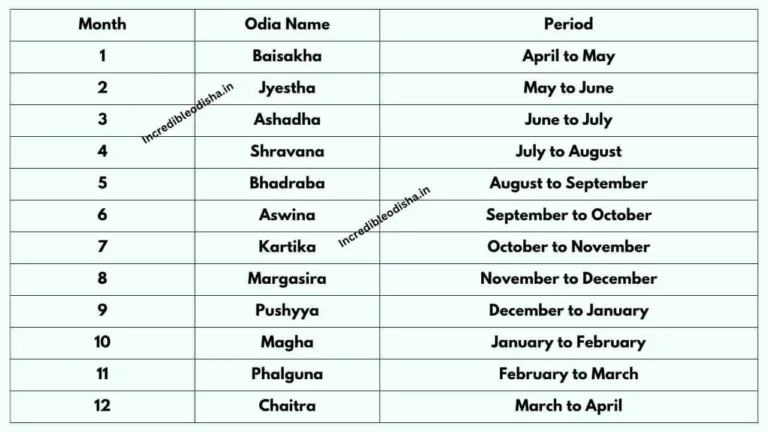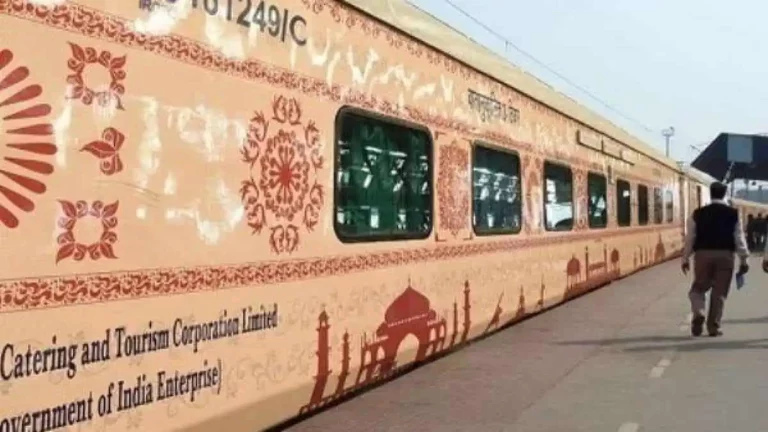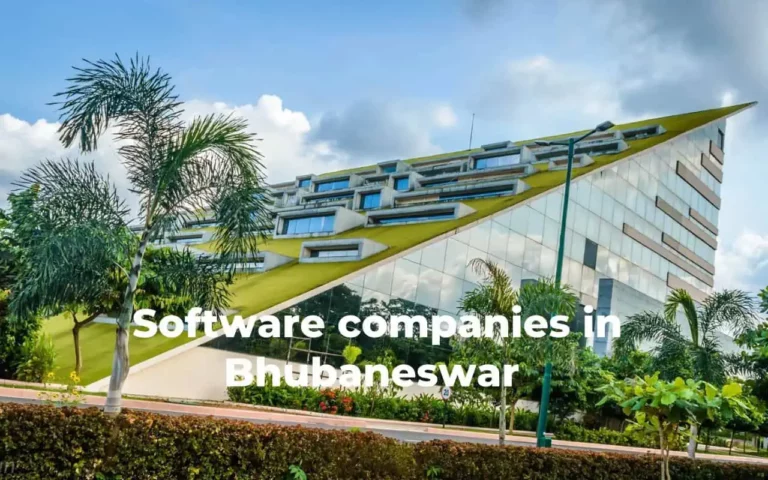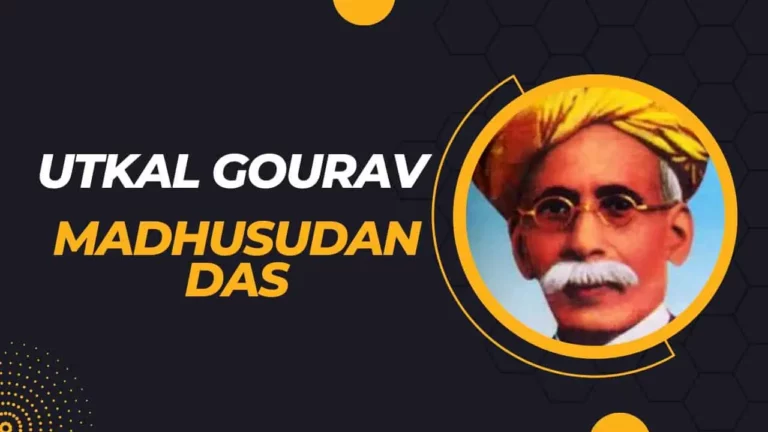Odisha lockdown updates – June 2021
Odisha lockdown updates
As the number of COVID cases rising day by day, The Odisha Govt on Sunday has published latest guidelines on Odisha lockdown in May 2021.
Here what the Govt order says about timing of Lockdown in Odisha in May 2021.
There shall be Lockdown throughout the State with effect from May 5, 2021 (Wednesday) till 5:00 AM of May 19, 2021 (Wednesday). However, there shall be complete Shutdown on weekends, starting 6:00 PM of Fridays till 5:00 AM of Mondays.
ON 30th May 2021; The Odisha lockdown is further extended till 17th June 2021.
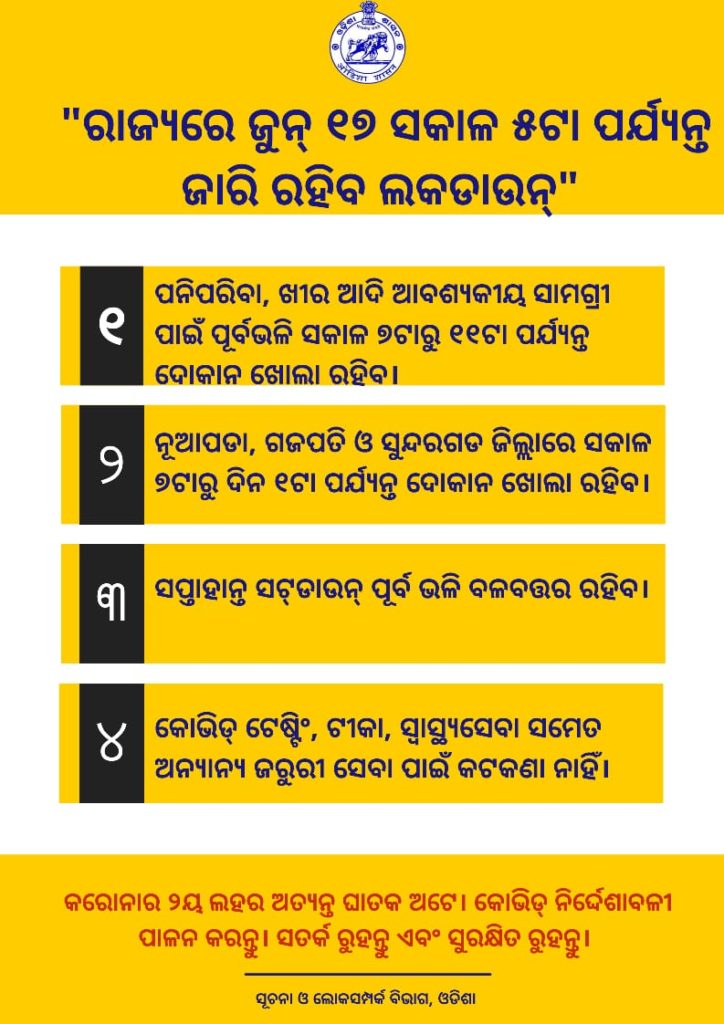
The lockdown is primarily aimed at restricting movement of persons. Movement of goods and goods carriers shall not be affected by the lockdown.
Complete guidelines for lock down can be found here. Here are the key points from the guidelines –
Which activities are not allowed during the Odisha lockdown in May 2021?
Below activities are prohibited during Odisha lockdown in May 2021 –
- Buses for public transport.
- Intra-State movement of individuals by road, except for medical reasons or for activities permitted under these guidelines.
- All educational, training, coaching institutions, etc., except as allowed by Government. However, physical conduct of examinations by statel national/ international bodies shall be allowed on a case to case basis by the respective Departments with due intimation to all concerned authorities.
- Exhibitions/ Trade Fairs/ Melas/ physical Business to Business meetings are prohibited. However, such activities may be taken up in virtual mode.
- Taxis (including auto rickshaws and cycle rickshaws) and services of cab aggregators (except as specified in subsequent paragraphs of this order).
- All cinema halls, malls, market complexes, gymnasiums, sports complexes, swimming pools, entertainment parks, theatres, parks, bars and auditoriums, assembly halls, Merry-go-round (Doli) / Meena bazaar and related activities and similar places.
- Jatra/ operal open air theatres shall not be allowed to operate.
- All salons/ barber shop, spa, beauty parlour etc. shall remain prohibited.
- All social/ political/ sports/ entertainment/ academic/ cultural/ religious functions/ other gatherings.
- All religious places, places of worship shall be closed for public. However religious rituals are allowed with bare minimum priests/ servitors and staff. Religious congregations are strictly prohibited.
- Marriages shall be permitted, with approval from local authorities, with not more than 50 persons and in case of funerals and last rites, the number of persons participating shall not be more than 20 (for the entire event) including hosts, guests, priests and catering and other support staff. Under no circumstances, the number of participants shall exceed the ceiling for the entire event. Marriage, funeral and last rites related gatherings shall be conducted as per the Government guidelines released vide Revenue and Disaster Management (DM) Department vide letter No. 2321/ R&DM(DM) dt. 30.04.2021
Which activities are allowed during the lockdown in Odisha in May 2021?
Below activities are can operate following COVID-19 protocols during Odisha lockdown in May 2021.
A. All health services (including AYUSH) to remain functional, such as
- Hospitals, nursing homes, clinics, telemedicine facilities.
- Dispensaries, chemists, pharmacies, all kinds of medicine shops including Jan Aushadhi Kendras and medical equipment shops.
- Medical laboratories and collection centres.
- Pharmaceutical and medical research labs, institutions carrying out COVID-19 related research.
- Veterinary Hospitals, dispensaries, clinics, pathology labs, sale and supply of vaccine and medicine.
- Authorised private establishments, which support the provisioning of essential services, or efforts for containment of COVID-19, including home care providers, diagnostics, supply chain firms serving hospitals.
- Manufacturing units of drugs, pharmaceuticals, medical devices, medical oxygen, their packaging material, raw material and intermediates.
- Construction of medical/ health infrastructure including manufacture of ambulances.
- Movement (inter and intra State, including by air) of all medical and veterinary personnel, scientists, nurses, para-medical staff. lab technicians, mid-wives and other hospital support services, including ambulances.
B. Financial Sector: following to remain functional
- Reserve Bank of India (RBI) and RBI regulated financial markets and entities like NPCI, CCIL, payment system operators, Clearing Houses and standalone primary dealers.
- Bank branches and ATMs, IT vendors for banking operations, Banking Correspondents (BCs), ATM operation and cash management agencies. However,Banks shall operate as per guidelines to be issued by Finance Department vide Letter No. 12822 dated 26.04.2021.
- SEBI, and capital and debt market services as notified by the Securities and Exchange Board of India (SEBI).
- IRDAI and Insurance companies.
- Non-Banking Financial Institutions (NBFCs) including Housing Finance Company (HFCs) and Micro Finance Institutions (NBFC-MFIs) with bare minimum staff.
- Co-operative Credit Societies.
Efforts should be made to operate with most minimum staff. Staffs should be encouraged to Work from Home ( WfH) wherever possible and feasible.
C. Public Utilities
- Operations of Oil and Gas sector, including refining, transportation, distribution, storage and retail of products, e.g., petrol, diesel, kerosene, CNG, LPG, PNG etc.
- Generation, transmission and distribution of power at State level.
- Postal services, including post offices.
- Operations of utilities in water, sanitation and waste management sectors, at municipal/ local body levels in State.
- Operation of utilities, including movement of vehicles and personnel, providing telecommunications, DTH and internet services, including maintenance of telecom towers and recharge facilities for prepaid mobile connection.
D. Commercial and private establishments, as listed below
- Shops, including ration shops (under PDS) and neighborhood/ roadsidel street corner shops, dealing with food, groceries, fruits and vegetables, dairy and milk booths, meat and fish, animal feed & fodder, seeds, fertilizers and pesticides including their transportation, warehousing and related activities. However, district authorities may encourage and facilitate home delivery to minimize the movement of individuals outside their homes.
- Street corner / road-side shops / stand-alone shops dealing with food and essential items, vegetables, fish, meat, and eggs and milk are allowed to operate on weekdays (Monday to Friday) between 6AM to 12 Noon. Such shops shall maintain a minimum 30 feet shop to shop distance. The shopkeepers and the buyers shall mandatorily abide by the Covid safety protocols like social distancing, use of mask.
- The local authorities shall demarcate areas for this purpose. The Collectors/ Municipal Commissioners shall make all efforts to disperse the vegetable vendors in such a manner that no person is required to travel more than 0.5 km for purchase of vegetables. Any violation of COVID-19 protocols will attract closurel sealing/cancellation of license of the concerned shops.
- However, weekly and daily haats shall be prohibited.
- Explanation: Food and grocery shall mean all items of food and grocery that are usually consumed by people on day to day basis and include, among others, hygiene products such as hand washes, soaps, disinfectants, body wash, shampoos, surface cleaners, detergents, tissue papers, toothpaste, oral care, sanitary pads, diapers, charger and battery cells, etc.
- Restaurants and dhabas for Takeaway and Home delivery only
- Home delivery by operators/ online delivery of all goods/ services by e-commerce platforms such as Amazon, Flipkart, Blue Dart, DTDC, Big Basket, Grofers, Urban Clap, Zomato, Myntra, Swiggy, KFC, Pizza Hut, Dominos, Uber Eats, etc.
- Retailers of food & grocery items such as Big Bazaar, Reliance Fresh, OMFED, OPOLFED, Chilika Fresh, Spencers, etc. They are also allowed to provide home delivery services.
- Print electronic and Web media.
- IT and IT enabled Services (TeS) with a maximum of 50% staff * (as far as possible to work from home).
- Data and Call Centers.
- Telecommunications, internet services, broadcasting and cable services/ DTH and optical fibre
- Petrol pumps, LPG, Petroleum and gas retail and storage outlets.
- Power generation, transmission and distribution units and services.
- Government approved Common Service Centers (CSCs) at Gram Panchayat level.
- Cold storage and warehousing services, including at ports, airports, railway stations, container Depots, individual units and other links in the logistics chain.
- Private security services and facilities management services for maintenance and upkeep of office and residential complexes.
- Hotels, home stays, Lodges and motels, which are accommodating tourists and persons stranded due to lockdown, medical and emergency staff, air and sea crew.
- Establishments used/ earmarked for quarantine facilities.
- Services provided by self-employed persons, e.g.. Electrician, IT repairs, plumbers, motor mechanics, and carpenters etc.
- Shops that repair and service electrical and electronic appliances including fans, air coolers, water purifiers, air conditioners, mobile phones, computers, accessories, etc.
- Shops dealing in construction equipment and supplies such as cement, iron rods, chips etc.
- Shops of educational books for students.
- Newspaper Delivery will be allowed between 5AM to 8AM.
E. Transportation
Public transport by buses (inter-state and intra-state) will remain suspended till 19th May 2021
Exceptions:
- Movement, loading/ unloading of goods/ cargo (inter and intra State) including transportation of all goods is allowed
- All goods carriers, whether loaded or unloaded.
- Fire, law and order and ODRAF, and other emergency services.
- Vehicles of Essential Service Agencies such as Municipality/ NAC, Power supply, Drinking Water Supply, Sewerage, Telecom (Private and Government) Service and other utility services Government and Private Vehicles used for Emergency and Covid Management
- Inter and intra state movement of goods/ cargo for inland and exports.
- Cross land border movement of essential goods including petroleum products and LPG, food products, medical supplies.
- Transportation for all medical personnel, nurses, paramedical staff and other hospital support services
- Transport to and from hospitals within the state. (In special cases, transportation to another state can be allowed with permission of DHS/ CDMOI Principal Superintendent of Government Medical Colleges.)
- Transportation to and from place of residence to Airports/ Railway Station with Rail/ Air Tickets/ Boarding Passes as evidence of travel along with an accepted Identity Card
- Private vehicles belonging to persons engaged in organisations/ agencies permitted to operate. Such persons should carry appropriate authorization and ID documents. Private vehicles shall not be allowed for procuring essential commodities, expect as per the orders of Hon’ble High Court of Orissa dated 10.04.2020 in WPC No. 9095 of 2020
- Transport aggregators like OLA cab/ UBER as permitted by C&T (T) Department for transportation of medical personnel/ patients to and from hospitals / persons travelling to and from their place of residence to Covid Vaccination Centres (CVC) and/or Government and Private Covid Testing Centres.
- Garages, vehicle repairing shops shall be allowed to operate
- All personnel travelling to and from place of work, in the exempted categories, as per the instructions of the concerned authorities, on production of valid identity card
F. Social Sector
- Operation of homes/ Therapy Centres for children/ disabled/ mentally challenged/ senior citizens/ destitute/ women/ widows including bed side attendant and care givers of senior citizens residing in their homes.
- Observation homes, after care homes and places of safety for juveniles.
- Disbursement of social security pensions, e.g., old age widow freedom fighter pensions; pension and provident fund services provided by Employees Provident Fund Organisation (EPFO).
- Operation of Anganwadis – Distribution of food items and nutrition at the doorsteps of beneficiaries, e.g., children, women and lactating mothers. Beneficiaries will not attend the Anganwadis.
- Production and marketing by Self Help Groups and activities of Mission Shakti (as decided by Collectors
G. Agricultural and related activities
All agricultural and horticultural activities to remain fully functional, such as
i. Farming operations by farmers and farm workers in field viz.:
- Sowing, nursery preparation, land preparation, irrigation, planting, harvesting, threshing, processing and packing, etc.
- All post harvesting activities
- Seed Growing, Distribution and Sale, including transport of raw seed.
- Seed storage, certification, testing, processing, grading and packing in both Govt. and private sectors.
- Allied industries dealing with packing material, seed treatment, chemical supplies, etc.
- Movement of vehicles involving above activities.
- Excavation of farm ponds and construction of water conservation structures
- Crop cutting experiments / loss assessment for crop insurance.
- Extension/ demonstration/ developmental and IEC activities in Agriculture and Horticulture sector by all Government Agencies j. Any other activities incidental to agriculture horticulture/ floriculture
- All activities relating to Kharif Crop Loans by Banks including Odisha State Co-operative Bank, District Cooperative Banks, PACS and LAMPCS
- All activities relating to procurement of pulses and oil seeds by NAFED / MARKFED and agencies allowed by NAFED
ii. Agencies engaged in procurement of agriculture products and MSP operations including private individuals and traders in vegetable & fruits (horticulture) supply chain & all vehicles carrying agriculturel horticulture produce and/or products, cold storage, warehousing services and packaging units with their transportation. ‘Mandis’ operated by the Agriculture Produce Market Committee (APMC), RMCs, PACS, LAMPCS, SHGs, Rural Haats or as notified by the State Government(e.g., satellite mandis), direct marketing operations by the State Government or by industry, directly from farmers/ group of farmers, FPOs’ Co-operatives, etc. Decentralized marketing and procurement at village level.
iii. Shops of agriculture machinery, its spare parts, storage houses and packaging units by wholesalers/ dealers/ retailers of fertilizers, pesticides, seeds and farm machinery (including its supply chain) and repairs to remain open.
iv. ‘Custom Hiring Centres (CHC)/ Agro Service Centres / Workshops/ Shops for repairing and spare parts related to farm machinery.
v. Manufacturing, distribution and retail of fertilizers, pesticides and seeds including shops dealing with fertilizers, pesticides and farm machineryl equipment, their transportation, warehousing, testing laboratories for seeds, soil, fertilizer and pesticides, etc. and related activities.
vi. Movement (inter and intra State) of harvesting and sowing related machines like combined harvester, tractor, power tillers, pump sets, threshers, seed drill and other agriculturel horticulture implements.
vii.Collection, harvesting and processing of Minor Forest Produce (MFP)/ Non Timber Forest Produce (NTFP) by scheduled tribes and other forest dwellers in forest areas.
viii.Facilities for export/ import such as pack houses, inspection and treatment facilities for seeds and horticulture produce.
ix.Research establishments dealing the agriculture and horticulture activities.
x.Inter and intra State movement of planting materials and honeybee colonies, honey and other beehive products
Fisheries:
- Operations of the fishing (marine and inland)/ aquaculture industry, including feeding(sea food quality testing laboratories) & maintenance, harvesting, processing including aqua laboratories, clinics, packaging, cold chain including ice es, sale and marketing. Functioning of fishing harbours, fish landing centres, fish auction halls, fish net manufacturing factories, fish net mending sheds and fish drying yards
- Hatcheries, feed plants, commercial aquaria
- Movement of fish/ shrimp and fish products, fish seed/ feed and workers for all these activities.
Plantations:
- Operations of coffee and rubber plantations, with maximum of 50% workers.
- Processing, packaging, sale and marketing of tea, coffee, rubber and cashew, with maximum of 50% workers.
- Bamboo, Coconut, Arecanut, Cocoa, Spices plantation and their harvesting, processing, packaging, sale and marketing.
- Pre-Plantation & Nursery Activities, Silvicultural operations, Creation and maintenance of water bodies, maintenance of plantations, Kendu leaf operation, Collection, procurement and marketing of NTFPs and MFPs with maximum of 50% workers.
Animal husbandry:
Collection, processing, distribution and sale of milk and milk products by milk processing plants, including transport and supply chain.
Operation of animal husbandry farms including poultry farms & hatcheries and livestock farming activity.
Animal feed manufacturing, transportation, distribution and retailing of cattle feed poultry feed, pet feed, any other livestock feed and feed plants, including supply of raw material, such as maize and soya.
Operation of animal shelter homes, Government veterinary hospitals, dispensaries, mobile veterinary units, Livestock Aid Centres and allied units, private veterinary clinics, and para-veterinarians; Artificial Insemination and Vaccination services; Disease Diagnostic Laboratories, Govt. Livestock and Fodder Farms, Frozen Semen Bank, Biological Product Institutes, veterinary care suppliers and retailers including veterinary medicine stores and operation of Gaushalas including feeding of stray animals.
H. Industries / Industrial Establishments (both Government and private), as
- All Industries operating in both urban and rural areas.
- Brick kilns in rural areas i.e., outside the limits of municipal corporations and municipalities.
- Workshops of Indian Railways.
- The Collector/ Municipal Commissioner shall allow operations of the corporate offices located in the district headquarters/ other locations in the district on application submitted by the corporatel industrial units which have been permitted to operate during the lockdown period.
- The Head of the industrial unit corporate office shall convey to the Collector/ municipal Commissioner the number of personnel (up to 30% of staff strength) as well as the number of vehicles required.
- For staff movement, two-wheeler is allowed only with the rider and no pillion rider and car is allowed with driver plus one passenger in the back seat.
I. Construction activities will be allowed in both Government and Private Sector
- All Construction activities and associated movement of vehicle/ labourers in both rural and urban areas.
- The Standard Operating Procedure is to be followed in the Government as well as private construction sitesand movement of personnel vehicles to prevent spreading of COVID-19 and to protect the workers/construction personnel from heat wave.
- The Collector/ Municipal Commissioner shall allow operations of the offices of the Contractors/ Construction agencies at district headquarters/ other places and work sites in the district on recommendation of the Executive Engineers of Works Divisions, during the lockdown period.
- Such offices located in the containment zones shall not operate.
- Letter of the Executive Engineer of the concerned Division to contractors/ construction agencies should be treated as valid document to allow travel of their personnel from homes to office/ work sites and to Government offices only for their professional requirement.
- For movement of staff, two wheeler is allowed only with the rider and no pillion rider and car is allowed with driver plus one passenger in the back seat.
J.Offices of the Government of India, its Autonomous/ Subordinate Offices will remain open, as mentioned below
- Defence, Central Armed Police Forces, Health and Family Welfare, Disaster Management and Early Warning Agencies (IMD, INCOIS, SASE and National Centre of Seismology, CWC), National Informatics Centre (NIC), Food Corporation of India (FCI), NCC, Nehru Yuva Kendras (NYKs) and Customs to function without any restriction.
- Other Ministries and Departments and offices under their control, are to function with 100% attendance of Deputy Secretary and levels above that. Remaining officers and staff to attend upto 33% as per requirement.
K.Offices of the State Government, their Autonomous Bodies and Local Governments will remain open, as mentioned below:
- Police, home guards, civil defence, fire and emergency services, disaster management, prisons and municipal services will function without any restrictions.
- All other Departments of State Government to work with restricted staff as directed by Government in General Administration & Public Grievance Department from time wever, delivery of public services shall be ensured and necessary staff will be deployed for such purpose.
- District administration and Treasury (including field offices of the Accountant General) will function with restricted staff. However, delivery of public services shall be ensured, and necessary staff will be deployed for such purpose.
- Resident Commissioner of State, in New Delhi, only to the extent of coordinating COVID-19 related activities and internal kitchen operations.
- Forest offices: staff/ workers required to operate and maintain zoo, nurseries, wildlife, fire-fighting in forests, watering plantations. Patrolling and their necessary transport movement. Forest office includes forestry plantation and related activities, including silviculture operation.
L. Offices of the Privatel Civil Society Sector:
Offices in privatel corporate and civil society sector shall work with reduced manpower, preferably at 33% of their staff strength. Such offices shall encourage Work from Home for their staff.
M. Training Activities
- Physical training of uniformed personnel such as, Police / Home Guard/ Fire Servicel Forest/ Excise etc are allowed with strict adherence to Covid safety protocols.
- All training activities of personnel for Election purpose& related activities shall be allowed to be conducted by District Administration, Puri with a relaxation of maximum batch size 20-25 trainee per session ensuring strict adherence to COVID safety protocols.
- Persons coming on emergency works related to Covid-19 management by Government and private hospitals as well as those coming in connection with election duty as per the orders of ECI or Chief Electoral Officer, Odisha shall be exempted from any type of quarantine. However, such persons shall strictly follow appropriate Covid-19 protocols and shall stay in designated places and not move around without any authorisation from appropriate authorities.
N. Operation of guidelines in containment zones
- In these containment zones, the activities allowed under these guidelines will not be permitted. There shall be strict perimeter control in the area of the containment zones to ensure that there is no unchecked inward/ outward movement of population from these zones except for maintaining essential services (including medical emergencies and law and order related duties) and Government business continuity. The guidelines issued in this regard by MOHFW will be strictly implemented.
- If any new area included in the category of containment zone, the activities allowed in that area till the time of its categorization as a containment zone, will be suspended, except for those activities which are specifically permitted under consolidated revised guidelines.
- The activities allowed under this guidelines will be withdrawn immediately, if any of the lockdown measures are violated, risking the spread of COVID-19. All entities, in the Government and private sectors, and members of public should follow the guideline strictly.
0. Additional restrictions during Weekend Shutdown:
- All commercial establishments, including essential food and vegetable shops, but excluding all medicine, pharmaceuticals and medical devices shops, shall be prohibited.
- However, home delivery of essential goods, food items, including grocery, vegetables, fish, meat, egg and milk are permitted. Further, home delivery of food by restaurants, hotels and aggregators such as Swiggy, Zomato etc. are allowed.
- No restrictions shall apply to COVID testing and vaccination centres and movement of persons/ vehicles for COVID testing and vaccination shall be allowed.
- All offices/ establishments will remain closed except the offices/ establishments indicated at point No B, K (i), K(v) & J(i)
General guidance during Lockdown and Weekend Shutdowns in Odisha:
No pass would be required for movement of above category of persons. Valid Travel documents/ authorizations such as airlinel railway/ bus tickets/ boarding passes, with any identity proof shall be adequate for the purpose. Identity cards issued by appropriate authorities of the establishments shall serve as pass for effecting movement of employees of establishments under permitted activities. Patients and their attendants/ persons requiring emergency need for movement shall be allowed to move with minimal proof of their emergencies. Officers/ staff on duty shall be sensitized to appreciate the situation of persons on the road and take suitable action to facilitate movement on emergency needs.
P. Involvement of Gram Panchayats
Gram Panchayat shall play a very important role in creating awareness among inhabitants about Covid Appropriate Behaviours (CABs) and keep a track on people coming from outside to their area, besides undertaking surveillance on the spread of the disease. Further, Gram Panchayats shall monitor the health condition of people in Home Isolation and report to BDOs/ Heath Officials about non-availability of appropriate conditions if any and the need for transferring patients from Home Isolation, if required. Further Gram Panchayat shall bring to the notice of Local Authorities (BDOI Tahsildar/ PHC/ CHC/ Police Station) in regards to violation of Covid-19 protocols and relevant guidelines on Covid-19 management by any individual(s).
Q. General Directives for COVID-19 Management
The following General Directives for COVID-19 Management shall be strictly followed throughout the State:
- Face coverings/ Masks: Wearing of face cover/ mask properly is compulsory in public places; in workplaces; and in public transport.
- Physical distancing: Individuals must maintain a minimum distance of 6 feet in public places.
- Spitting in public place will be punishable with fine, as prescribed in accordance with laws, rules or regulations.
- Same as permitted by the Excise Department, consumption of liquor in public place is prohibited.
- Consumption of paan, gutka, tobacco, and similar products in public place is prohibited
R. Safety and Protection of vulnerable persons
The following categories of people are advised against outdoor movement, except for essential and health purposes.
- persons above 65 years of age
- persons with co-morbidities
- pregnant women
- children below the age of 10 years
S. Instructions for enforcement of above lockdown measures:
- All the district magistrates shall strictly enforce the National COVID 19 directives as specified in Annexure I. Penalties prescribed shall be levied and collected from all persons and entities violating these directives.
- All industrial and commercial establishments, work places, offices etc. shall put in place arrangements for implementation of SOP before starting their functioning.
- Police Commissioner, Collector, ADM, CDM&PHO, DCP, Sub-Collector, Tahasildar, B.D.O, Municipal Commissioner and Executive Officer of Urban Local Bodies are hereby authorized to take all necessary actions for enforcement and implementation of the aforesaid measures. Local police shall render necessary assistance as and when requisitioned by the aforementioned officers.
T. Penal provisions
Any person violating these lockdown measures will be liable to be proceeded against as per the provisions of Section 51 to 60 of the Disaster Management Act, 2005, and COVID-19 Regulations 2020, besides legal action under Sec. 188 of the IPC, and other legal provisions as applicable.
In case of any other doubt, the State Government in Revenue &Disaster Management (Disaster Management) Department will issue necessary directions or clarifications.
FAQ on Odisha lockdown in May / June 2021
Is marriage allowed during Odisha lockdown in May / June 2021?
Yes Marriage is allowed during the Odisha lockdown in May 2021. Marriage, funeral and last rites related gatherings shall be conducted as per the Government guidelines released vide Revenue and Disaster Management (DM) Department vide letter No. 2321/ R&DM(DM) dt. 30.04.2021
Is Construction activity allowed during the Odisha lockdown in May / June 2021?
Yes Construction activities for both Govt and private are allowed during the Odisha lockdown in May / June 2021. The activities has to be performed following the COVID-19 protocols.
Are shops open during Odisha lockdown in May /June 2021?
Yes vegetable shops, Kirana shops , meat shops, fish shops are open during the Odisha lockdown in May / June 2021.
Street corner / road-side shops / stand-alone shops dealing with food and essential items, vegetables, fish, meat, and eggs and milk are allowed to operate on weekdays (Monday to Friday) between 6AM to 12 Noon.
